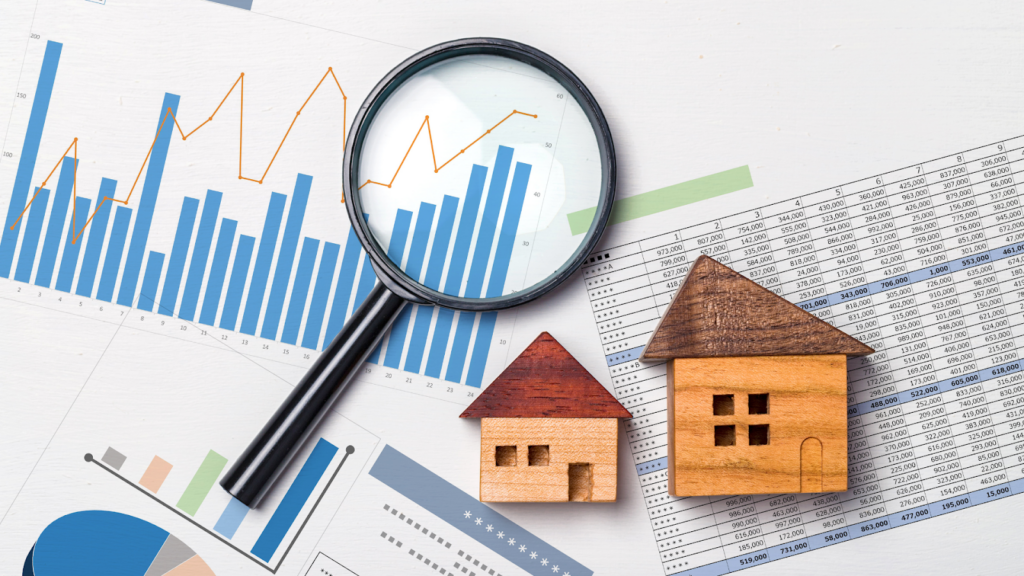Appraised Value Vs. Market Value: Why It Matters For Property Taxes
March 19, 2025
Definition: Appraised value is a property’s tax-assessed worth, determined by local appraisal districts using standardized formulas. Unlike market value, which reflects buyer demand, appraised value determines property taxes and may not match real estate trends.
Science Behind It: Texas appraisal districts use three methods to determine appraised value: the cost approach estimates rebuild costs with depreciation, the sales comparison approach adjusts for recent similar sales, and the income approach evaluates rental income for commercial properties.
Examples in Action:
- Sarah listed her home for $500K, but her county appraised it at $450K – showing how appraisals lag behind market trends. A business owner, Mike got a $600K tax assessment while similar properties sold for $550K, risking higher taxes.
Fun Fact: Texas has one of the highest property tax rates (avg. 1.68%). With no state income tax, property taxes fund public services – making it crucial to monitor appraisals and dispute errors.
Key Takeaways:
- Appraised Value vs. Market Value: Appraised value determines property taxes, while market value reflects buyer demand. Discrepancies between the two can lead to unfair tax assessments.
- Improving Your Appraised Value: Regular home improvements, curb appeal maintenance and necessary repairs help ensure a fair appraisal, benefiting homeowners looking to refinance, sell, or dispute overvaluations.
- What Drives Market Value? Factors like location, economic trends, and housing demand impact market value, but appraisal districts rely on standardized assessments that may not reflect real-time market shifts.
Why Appraised Value Matters More Than You Think
Appraised value and market value serve different purposes, yet both impact homeowners. While market value fluctuates with buyer demand, the appraised value is set by local authorities for tax purposes. Understanding this difference helps homeowners manage their property taxes effectively:
What Is Appraised Value?
Appraisal districts assign the appraised value based on location, size, and condition. Unlike the market value, it remains stable and is reassessed annually to determine property taxes, directly influencing how much a homeowner owes yearly.
How Does Market Value Differ?
Market value is based on real estate trends, buyer demand, and home upgrades. It fluctuates constantly, unlike appraised value, which can lag behind market shifts, sometimes leading to discrepancies in taxation for homeowners.
Why It Matters For Property Taxes
Since property taxes rely on appraised value, an overassessment means higher taxes. Homeowners should review their valuation and dispute inaccuracies to avoid overpaying and ensure a fair property tax rate.
The Role Of Professional Assistance
Icon Property Tax helps homeowners challenge unfair appraisals. Their trusted local tax agents review assessments, identify errors, and fight for lower property taxes, ensuring fair and accurate valuations.
How Homeowners Improve Their Appraised Value
Managing your appraised value effectively can prevent excessive property taxes and ensure a fair assessment. Implementing key strategies can positively influence your home’s valuation:
- Keep Track of Home Improvements: Maintaining records of renovations, such as kitchen remodels or new roofing, helps appraisers assess your home’s true value during evaluations.
- First Impressions Count: A well-maintained exterior with trimmed landscaping, fresh paint, and clean pathways signals property upkeep and can improve appraisal results.
- Fix What Needs Fixing: Addressing issues like foundation cracks, leaky roofs, or faulty wiring prevents value deductions and ensures a more accurate appraised value.
- Stay Informed About Local Market Trends: Monitoring comparable home sales in your area helps determine whether your appraised value aligns with current market conditions.

Factors That Influence Market Values
Understanding what drives market value is crucial for homeowners who want to make informed decisions about their property and taxes. While appraised value follows a standardized formula, market value fluctuates based on various real estate factors. Here’s what determines a home’s worth:
Location And Neighborhood Appeal
A home’s market value depends heavily on its location, with properties near top-rated schools, parks, shopping centers, and public transportation typically commanding higher prices. Neighborhood safety, walkability, and infrastructure improvements also impact desirability, while declining areas, crime rates, and poor amenities can lower property values significantly.
Local Real Estate Trends
Market value shifts with real estate trends, as increasing demand in a growing city leads to price appreciation, while economic downturns or excess housing supply can cause stagnation or decline. Areas experiencing gentrification, new commercial developments, or population booms often see rapid increases in market value.
Property Condition And Features
Well-maintained homes with modern updates, energy-efficient installations, and attractive landscaping tend to have higher market values, while neglected properties needing significant repairs may struggle in the market. Factors such as curb appeal, interior renovations, and overall upkeep play a significant role in determining a home’s perceived worth.
Comparable Sales (“Comps”)
Real estate professionals and appraisers determine market value by comparing similar properties that have recently sold in the area. Factors such as square footage, home age, number of bedrooms, and amenities influence price differences. High-priced sales nearby can push values up while declining sales lower them.
Economic Factors And Buyer Purchasing Power
Market values rise when economic conditions favor buyers, such as low interest rates, strong employment, and increasing wages, making homeownership more accessible. Conversely, inflation, rising mortgage rates, and financial uncertainty reduce affordability, limiting demand and causing property prices to plateau or decrease in response.
Supply and Demand in the Housing Market
The scarcity of homes in high-demand areas pushes prices higher, especially in cities with limited new construction or increasing migration. When too many homes are available compared to buyers, sellers may be forced to reduce asking prices, leading to a decline in overall market values.
Zoning Laws and Future Development
Local government policies and infrastructure projects influence market value, with zoning changes, new highways, public transit expansions, and business developments increasing desirability. However, industrial rezoning, environmental concerns, and overcrowding can have the opposite effect, lowering property values and reducing a neighborhood’s long-term investment appeal.
Navigating Property Assessment As A Texas Resident
Property assessments directly impact how much homeowners pay in taxes, but many don’t fully understand how appraised values are determined or why they may not match market values. Here’s what you need to know when navigating your Texas property assessment:
How Appraised Value Is Determined
The appraised value is set by local appraisal districts using a standardized process that considers a property’s size, condition, location, and comparable home sales. While it provides a basis for property taxation, it does not always reflect real-time market trends, leading to discrepancies in tax assessments.
Why Appraised And Market Values Differ
Market value fluctuates based on supply, demand, and economic conditions, while appraisal districts adjust appraised value annually. This misalignment means a home’s taxable value may be higher or lower than its actual worth, often resulting in homeowners either overpaying or underpaying property taxes.
What Happens If Your Appraisal Is Too High?
An inflated appraised value can lead to a higher tax bill, putting financial strain on homeowners. Since Texas property taxes are among the highest in the nation, disputing an unfair appraisal can result in meaningful savings and a more accurate reflection of a home’s worth.
How To Challenge Your Appraised Value
Homeowners can file a protest with their local appraisal district by gathering evidence of comparable sales, documenting property conditions, and attending a formal hearing. Working with experts like Icon Property Tax increases the chances of a successful appeal, potentially lowering annual tax payments.

Frequently Asked Questions About Appraised Value vs. Market Value
What is the appeal process for disputing a property appraisal?
If you believe your property has been over-assessed, you can file a protest with your local appraisal district by gathering recent sales data, home condition records, and neighborhood trends before presenting your case to the Appraisal Review Board for reassessment.
Are there any benefits to having a higher appraised value?
While a higher appraised value can increase property taxes, it may also boost your home’s perceived worth in a competitive market, making it attractive to buyers or lenders when considering refinancing or equity loans.
What should I do if my home’s market value drops significantly?
If market conditions cause home values to decline but your appraisal remains high, you should request a reassessment from the appraisal district, provide updated comparables, and appeal to correct your tax burden accordingly.
Why might a homeowner want a lower appraised value?
A lower appraised value directly reduces property tax liability, providing financial relief for homeowners, especially those on fixed incomes, dealing with unexpected expenses, or looking to cut costs on homeownership in high-tax areas.
Why does appraised value differ from market value?
Appraised value is determined by standardized calculations from local appraisal districts, while market value fluctuates based on economic trends, buyer demand, interest rates, and local real estate conditions, often creating disparities between the two figures.
How often do market values fluctuate?
Market values shift frequently due to changing economic conditions, neighborhood developments, housing inventory, and mortgage rates. As a result, it is important for homeowners to stay informed and reassess their property tax obligations as real estate trends evolve.

